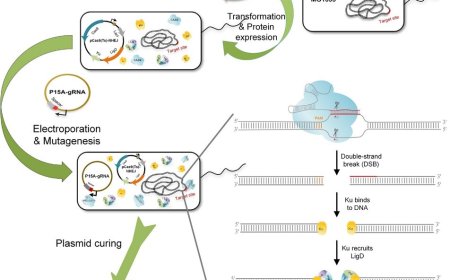Redefining Nursing Education Through Competency-Based Approaches

Nursing education is undergoing a major transformation. No longer confined to rigid curriculums, fixed academic calendars, and one-size-fits-all learning, modern nursing education increasingly focuses on flexibility, personalization, and practical application. The shift toward competency-based education (CBE) is shaping the future of nursing, emphasizing not just theoretical knowledge but demonstrated skills, critical thinking, and leadership. Capella Universitys FlexPath model, for example, enables learners to progress at their own pace while mastering essential professional competencies. Support platforms like FPX Assessments enhance this journey, offering clarity and guidance for students navigating performance-based assignments and assessments.
The Need for Change in Nursing Education
The healthcare landscape is becoming more dynamic, with emerging technologies, complex patient needs, and heightened expectations for quality and safety. Traditional nursing programs, while effective in the past, often lack the agility and personalization necessary to prepare nurses for the multifaceted roles they now occupy.
Todays nurses are clinicians, coordinators, educators, policy influencers, and more. To thrive in these roles, they must develop leadership, systems thinking, and evidence-based practice skillsattributes that traditional education may not sufficiently prioritize.
Competency-based education responds to this gap by emphasizing the demonstration of abilities rather than time spent in a classroom. Students advance by showing they can apply knowledge in practice, often through realistic scenarios and reflective assessments. This approach is particularly beneficial for working nurses seeking advancement without pausing their careers.
FlexPath exemplifies this model, giving learners control over their pace and schedule. Instead of lectures and exams, students complete projects and case analyses that mirror professional challenges. Tools like FPX Assessments provide helpful support by translating course requirements into understandable, actionable strategies for success.
Learning by Doing: Practical, Real-World Assessments
FlexPaths strength lies in its focus on assignments that resemble actual nursing responsibilities. From creating patient education plans to analyzing public health data and proposing organizational improvements, students engage in work that is relevant to current clinical environments.
Each assignment is an opportunity to think critically, integrate theory, and reflect on practice. The approach encourages deep learning, rather than memorization, and reinforces skills through repetition and revision.
Students also benefit from ongoing feedback provided by faculty mentors. These experienced professionals act as coaches, guiding learners toward higher-order thinking and ensuring that each assessment meets academic and professional standards.
FlexPath allows nurses to take ownership of their education, helping them become more autonomous, confident, and adaptable in their professional roles. The model fosters independence while ensuring support is always available.
Building Public Health Awareness and Impact
Modern nurses must understand population health trends, analyze community needs, and engage in preventive care. This is especially important as healthcare systems increasingly recognize the value of public health initiatives in reducing long-term costs and improving patient outcomes.
nurs fpx 4035 assessment 3 is one of the assessments designed to build such competencies. In this assignment, students typically investigate a community health problemsuch as high obesity rates, low vaccination uptake, or poor prenatal care accessand evaluate the success of an intervention program.
The task requires learners to use data, literature, and real-world examples to assess the interventions impact. They are encouraged to examine health disparities, cultural influences, and systemic barriers, and then propose evidence-based enhancements or alternatives.
This experience prepares nurses to think beyond individual patient care and develop solutions that improve health outcomes at the population level. It teaches critical analysis, program evaluation, and collaboration with community stakeholders.
By engaging in these assignments, students gain practical insight into how nurses can act as agents of change in public healththrough education, outreach, policy, and advocacy.
Advancing Leadership and Systems Thinking
As nursing roles evolve, leadership has become a core competency. Nurses are expected not only to participate in healthcare teams but to lead themidentifying issues, designing solutions, and facilitating implementation. Competency-based education supports this by encouraging learners to address organizational challenges and apply evidence-based leadership strategies.
nurs fpx 4055 assessment 4 reflects this leadership development. Students are asked to choose a persistent problem in a healthcare setting, such as patient handoff errors, inconsistent discharge instructions, or medication reconciliation failures. They must analyze the problem, assess contributing factors, and create a realistic plan for resolution.
The assignment demands critical thinking, strategic planning, and a deep understanding of healthcare systems. Students must justify their proposals with research, stakeholder feedback, and measurable goals. They often use models like PDSA or Root Cause Analysis to structure their interventions.
This experience instills confidence and prepares nurses to take on leadership roles regardless of their title. It teaches them how to navigate resistance, communicate effectively, and drive meaningful improvements in safety and care quality.
More importantly, it shows that leadership is not limited to formal managersevery nurse has the capacity to lead within their scope of practice, and every improvement effort starts with identifying a need.
Embracing Technology and Evidence in Modern Care
In todays healthcare system, evidence-based practice (EBP) and technological literacy are non-negotiable. Nurses must be able to evaluate research, implement best practices, and use digital tools to enhance patient outcomes. Competency-based learning ensures these skills are developed in a structured, meaningful way.
Students in FlexPath programs routinely engage with research databases, clinical guidelines, and digital tools. Assignments require them to formulate clinical questions, review literature, and apply findings in practical contexts. This cultivates a habit of inquiry and equips them to stay current with emerging evidence throughout their careers.
Informatics is also deeply embedded. Students learn to assess the role of electronic health records (EHRs), telehealth systems, and patient engagement platforms. They explore how data can drive care coordination, inform decision-making, and support quality metrics.
By mastering both research and technology, students develop a toolkit that enhances their efficiency, accuracy, and impact in clinical practice. They are better prepared for future roles in education, informatics, leadership, and policy development.
Conclusion: The Capstone Experience and Career Readiness
As learners near the completion of their FlexPath program, they are tasked with applying everything theyve learned in a final capstone project. nurs fpx 4045 assessment 4 is designed to synthesize knowledge, skills, and professional insight into one comprehensive assignment.
This capstone typically involves identifying a complex healthcare issue, such as care fragmentation, high readmission rates, or communication breakdowns. Students develop an intervention plan grounded in research, leadership principles, and practical application.
The project includes a full analysis of the issue, a proposed evidence-based solution, an implementation timeline, and strategies for measuring effectiveness. Students must consider barriers, stakeholder needs, and sustainability.
Completing this assessment signals readiness to transition from student to practitioneror to step into more advanced roles. It demonstrates a nurses ability to think strategically, advocate for improvement, and lead in a clinical environment.
Ultimately, the FlexPath experienceguided by tools like FPX Assessmentsprepares nurses not just to graduate, but to thrive. It cultivates professionals who are reflective, competent, and deeply committed to advancing the quality of care in every setting they enter.


























